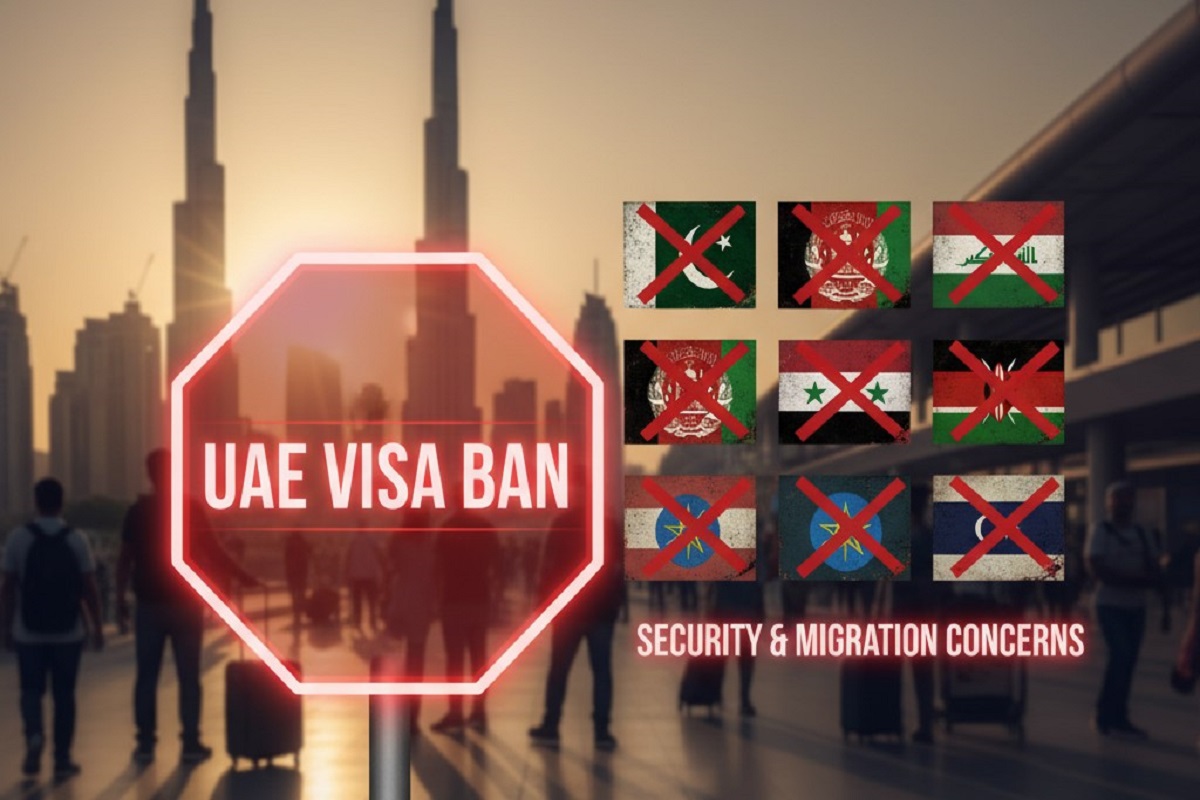Dubai, UAE — September 23, 2025: The United Arab Emirates (UAE) has temporarily suspended the issuance of tourist and work visas for citizens from nine countries, effective immediately. This move, part of the UAE’s broader visa policies for 2026, aims to address national security, public health, and migration control concerns. While the UAE government has not officially confirmed the suspension, an internal immigration circular has been reported by multiple media outlets, indicating a significant policy shift.
Affected Countries
The suspension applies to nationals from the following countries:
- Afghanistan
- Libya
- Yemen
- Somalia
- Lebanon
- Bangladesh
- Cameroon
- Sudan
- Uganda
This measure does not affect individuals who already hold valid UAE visas; they can continue to enter and reside in the country as usual. However, new applications for tourist and work visas from these nations are currently on hold until further notice.
Top 10 Big Companies in Qatar 2025: Market Leaders and Their Stories
Reasons Behind the Suspension
Although official statements from UAE authorities are pending, the suspension is believed to be driven by several factors:
- Security Concerns: The UAE has been increasingly vigilant about national security, leading to stricter immigration policies. This includes addressing issues related to terrorism and illegal activities.
- Migration Control: The UAE aims to regulate the influx of foreign nationals to ensure sustainable growth and maintain public order. This includes managing the labor market and preventing illegal overstays.
- Public Health: Ongoing global health concerns have prompted many countries, including the UAE, to reassess their immigration policies to protect public health.
These factors collectively contribute to the UAE’s decision to implement the visa suspension.
Implications for Affected Nationals
The suspension has significant implications for citizens of the affected countries:
- Travel Disruptions: Individuals planning to visit the UAE for tourism or business purposes may face delays or cancellations of their travel plans.
- Employment Opportunities: Workers seeking employment in the UAE may find it challenging to obtain necessary visas, impacting labor mobility.
- Economic Impact: The suspension could affect remittances from expatriates working in the UAE to their home countries, potentially impacting their economies.
- Diplomatic Relations: The move may strain diplomatic relations between the UAE and the affected countries, leading to discussions on how to address the underlying issues.
Expert Opinions
Experts suggest that the UAE’s decision reflects a broader trend of tightening immigration policies in the Gulf region. Dr. Khalid Al-Mansouri, a political analyst based in Abu Dhabi, commented:
“This suspension is part of a strategic shift towards more controlled and selective immigration policies. The UAE is focusing on attracting skilled professionals and investors while managing risks associated with illegal immigration and security threats.”
FAQs
A: The suspension applies to nationals from Afghanistan, Libya, Yemen, Somalia, Lebanon, Bangladesh, Cameroon, Sudan, and Uganda.
A: No, individuals with valid UAE visas are not affected and can continue to enter and reside in the country.
A: The suspension is believed to be driven by security concerns, migration control, and public health considerations.
This development underscores the UAE’s evolving approach to immigration and its focus on ensuring national security and public welfare. Individuals from the affected countries are advised to stay informed through official channels for updates on the status of the visa suspension.









